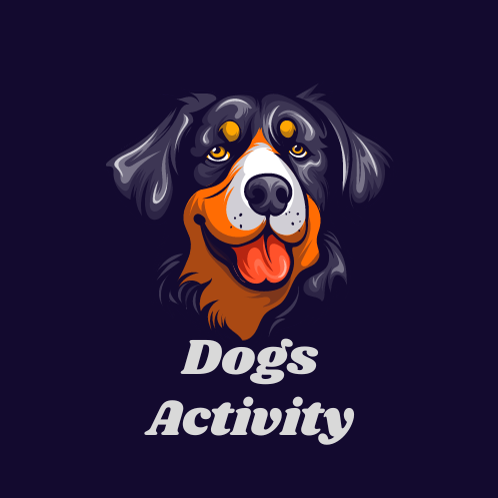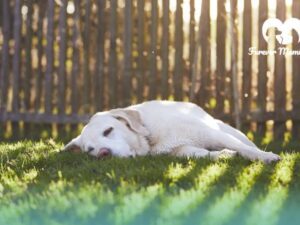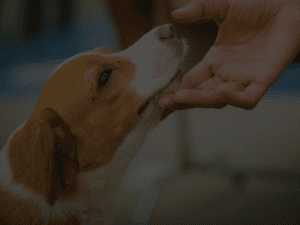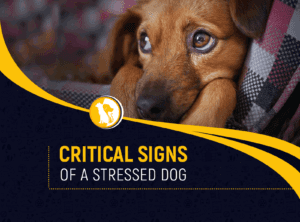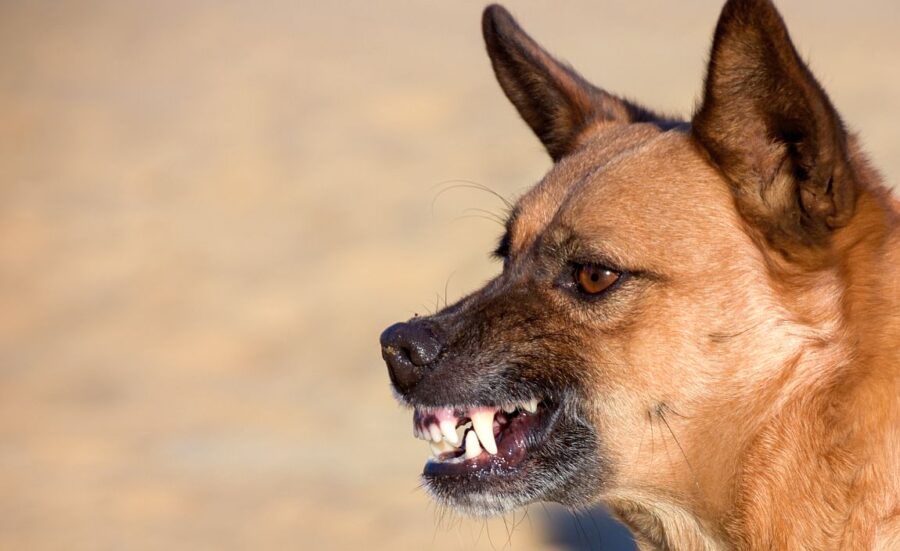
Introduction
Bringing home a new puppy is an exciting and joyous occasion for many families. Puppies are often seen as playful, adorable, and affectionate companions. However, some puppies may display behaviors that are unexpected or concerning, such as aggression. Witnessing aggression in a young and seemingly innocent puppy can be distressing and confusing for pet owners. The question often arises: “Why is my puppy so aggressive?”
Understanding the reasons behind a puppy’s aggressive behavior is crucial in addressing and managing it effectively. This comprehensive guide aims to delve into the various factors contributing to puppy aggression and provide insights into how to handle and prevent it.
Understanding Aggression in Puppies:
Witnessing aggressive behavior in a puppy can leave pet owners feeling bewildered and concerned. It’s important to note that aggression in puppies can manifest in various forms, such as growling, biting, snapping, or even excessive barking. While it might seem alarming, it’s essential to approach the issue with patience and understanding rather than frustration or punishment.
Types of Puppy Aggression
Before delving into the underlying causes, it’s essential to understand the different types of aggression that puppies may exhibit:
- Fear-Based Aggression: Puppies, like humans, can experience fear, and when they feel threatened or scared, they may resort to aggression as a defense mechanism. This aggression is often triggered by unfamiliar situations, loud noises, or intimidating encounters.
- Territorial Aggression: Puppies are instinctively protective of their territory, which can include their living space or their owners. They might display aggression towards perceived intruders, be it other animals or people.
- Possessive Aggression: Dogs can be possessive of their food, toys, or even their owners’ attention. This type of aggression is evident when a puppy becomes defensive or aggressive when someone tries to take away something they consider their own.
- Redirected Aggression: When a puppy is unable to reach a source of frustration or excitement, they might redirect their aggression toward the nearest target, which could be another pet or even a family member.
- Play Aggression: Puppies often play rough, which can sometimes escalate into seemingly aggressive behavior. They may nip, bite, or engage in rough play, especially during their developmental stages.
Causes of Puppy Aggression
Several factors contribute to the development of aggressive behavior in puppies:
- Lack of Socialization: Puppies that haven’t been adequately socialized during their critical developmental period (usually between 3 to 14 weeks of age) may display fear-based aggression towards new people, animals, or environments.
- Genetics and Breed Tendencies: Certain dog breeds are predisposed to exhibiting more assertive or protective behaviors. While genetics play a role, proper training and socialization can significantly influence a dog’s behavior.
- Health Issues: Underlying health problems such as pain, injury, or neurological issues can cause a puppy to exhibit aggressive behavior. It’s essential to rule out any medical reasons by consulting a veterinarian if aggressive behavior arises suddenly.
- Misunderstood Communication: Humans and dogs communicate differently. Misinterpreting a puppy’s body language or inadvertently reinforcing aggressive behavior can lead to its persistence.
- Unmet Exercise and Mental Stimulation Needs: Puppies require physical exercise and mental stimulation to stay healthy and balanced. Lack of sufficient activity can lead to frustration and pent-up energy, resulting in aggressive behavior.
Managing and Preventing Puppy Aggression
- Early Socialization: Exposing puppies to various people, animals, sounds, and environments in a positive and controlled manner during their critical socialization period is crucial. This helps them develop confidence and reduces the likelihood of fear-based aggression.
- Consistent Training: Implementing positive reinforcement training methods helps in shaping desirable behavior in puppies. Reward-based training encourages good behavior and teaches them appropriate responses to various situations.
- Establishing Routine and Boundaries: Providing a structured routine and clear boundaries helps puppies understand what is expected of them. Consistency in training and enforcing rules creates a sense of security and reduces anxiety-driven aggression.
- Proper Exercise and Mental Stimulation: Regular physical exercise and mental stimulation through interactive toys, puzzles, and training sessions help channel a puppy’s energy positively, reducing the likelihood of boredom-induced aggression.
- Seek Professional Guidance: If a puppy’s aggressive behavior persists or escalates despite consistent training efforts, seeking guidance from a professional dog trainer or behaviorist is recommended. They can assess the situation and provide tailored strategies to address the specific issues.
As much joy as having a puppy brings, encountering aggression in a young dog can be both distressing and confusing for pet owners. It’s crucial to understand that aggression in puppies is a relatively common issue, but addressing it promptly and correctly is key to ensuring a harmonious relationship between the pup and its human family. Let’s delve into the intricacies of an aggressive puppy and explore the underlying reasons behind this behavior.
Why Is My Puppy So Aggressive?
Several factors can contribute to a puppy displaying aggressive behavior:
- Fear and Anxiety: Puppies may exhibit aggression when they feel threatened or scared. This response is often a defense mechanism to protect themselves.
- Territorial Behavior: Puppies, like adult dogs, can display territorial aggression. They might perceive certain spaces or objects as theirs and react aggressively to perceived intrusions.
- Lack of Socialization: Insufficient exposure to various environments, people, and other animals during a critical developmental period can lead to fear-based aggression in puppies.
- Pain or Discomfort: If a puppy is experiencing pain or discomfort due to an underlying health issue, they may display aggression as a means of communicating their distress.
- Play Behavior Gone Awry: Sometimes, rough play or overstimulation during playtime can lead to aggressive behavior in puppies.
Dealing with an Aggressive Puppy:
Addressing aggression in a puppy requires a thoughtful approach and consistent training. Here are some strategies to help manage and mitigate aggression in your young furry companion:
1. Professional Evaluation:
If you’re concerned about your puppy’s aggressive behavior, seek advice from a veterinarian or a professional dog trainer. They can rule out any underlying medical conditions and provide guidance on behavioral training.
2. Socialization:
Expose your puppy to various environments, people, and animals in a controlled and positive manner. Proper socialization can help reduce fear-based aggression by making your puppy comfortable in different situations.
3. Positive Reinforcement:
Utilize positive reinforcement techniques, such as treats, praise, and rewards, to encourage good behavior. Reward your puppy for calm and non-aggressive conduct to reinforce positive habits.
4. Consistent Training:
Establish consistent training routines that focus on obedience and impulse control. Teach basic commands like “sit,” “stay,” and “leave it” to help manage your puppy’s behavior in different situations.
5. Avoid Punishment:
Refrain from punishing or scolding your puppy for aggressive behavior as this may exacerbate the issue. Instead, redirect their attention and reward desirable behavior.
6. Manage Stress:
Create a safe and stress-free environment for your puppy. Provide ample opportunities for rest, play, and mental stimulation while ensuring they have a designated space to retreat if feeling overwhelmed.
Conclusion:
Having an aggressive puppy can be a challenging situation, but with patience, understanding, and consistent training, it’s possible to address and modify this behavior. Understanding the reasons behind your puppy’s aggression is crucial in implementing effective strategies for managing it. Seeking guidance from professionals and implementing positive reinforcement techniques are pivotal in shaping your puppy’s behavior positively. Remember, addressing aggression in puppies is a process that requires time, dedication, and a compassionate approach to ensure a happy and well-behaved canine companion in the long run.Understanding why a puppy exhibits aggressive behavior is the first step towards effectively managing and preventing it. Patience, consistency, and a proactive approach are key in addressing puppy aggression. Remember, seeking professional guidance and consulting with a veterinarian should be prioritized when dealing with persistent or concerning aggression in puppies. With dedication and the right approach, most cases of puppy aggression can be successfully managed, allowing for a harmonious relationship between the puppy and its human family.
